- Introduction to Bad Breath
- Common Causes of Bad Breath
- How to Prevent Bad Breath
- Effective Treatment Options for Bad Breath
- Best Products for Treating Bad Breath
Introduction to Bad Breath
Bad breath, also known as halitosis, is a common issue that affects many people. It can occur occasionally or persistently and may be caused by a variety of factors. Understanding the underlying causes of bad breath is essential for effective treatment and prevention. This article will explore the most common causes of bad breath and provide tips on how to manage it.
Common Causes of Bad Breath
Several factors can contribute to bad breath, ranging from poor oral hygiene to underlying health conditions. Below are the most common causes:
- Poor Oral Hygiene: The most common cause of bad breath is the buildup of food particles and plaque in the mouth. When food particles are left behind, bacteria feed on them, releasing sulfur compounds that cause foul odors.
- Dry Mouth (Xerostomia): Saliva helps cleanse the mouth and remove food particles. A dry mouth due to medications, dehydration, or certain health conditions can lead to bad breath.
- Food and Beverages: Certain foods, such as garlic, onions, and spicy foods, can contribute to bad breath. These foods contain sulfur compounds that are absorbed into the bloodstream and exhaled through the lungs.
- Tobacco Use: Smoking or chewing tobacco products can cause bad breath and damage the gums, teeth, and soft tissues in the mouth.
- Health Conditions: Bad breath can also be a symptom of underlying health problems, such as respiratory infections, gum disease (gingivitis or periodontitis), sinus infections, diabetes, and liver or kidney disease.
- Medications: Some medications, including those used to treat high blood pressure or allergies, can cause dry mouth or alter the composition of saliva, leading to bad breath.
How to Prevent Bad Breath
Preventing bad breath involves practicing good oral hygiene and addressing any underlying health issues. Here are some helpful tips:
- Brush and Floss Regularly: Brush your teeth at least twice a day using fluoride toothpaste and floss daily to remove plaque and food particles that cause odor.
- Stay Hydrated: Drink plenty of water throughout the day to prevent dry mouth. If dry mouth persists, consult with your dentist for solutions such as saliva substitutes.
- Eat Fresh Foods: Fresh fruits and vegetables can help freshen your breath. Apples, carrots, and celery are natural odor-neutralizing foods.
- Quit Smoking: If you smoke, quitting can significantly improve your breath and overall oral health.
- Visit the Dentist Regularly: Routine dental checkups allow your dentist to detect and treat potential issues such as gum disease or cavities that may contribute to bad breath.
Effective Treatment Options for Bad Breath
If you are experiencing persistent bad breath, it’s important to identify the cause and seek appropriate treatment. Here are some common treatment options:
- Antibacterial Mouthwash: Using a mouthwash with antibacterial properties can help eliminate the bacteria that cause bad breath. Look for mouthwashes with ingredients like chlorhexidine or cetylpyridinium chloride.
- Professional Dental Cleanings: Regular cleanings by a dentist or dental hygienist can help remove tartar and plaque buildup that regular brushing and flossing might miss.
- Addressing Dry Mouth: If dry mouth is contributing to bad breath, using saliva substitutes or chewing sugar-free gum can help stimulate saliva production.
- Treating Underlying Conditions: If bad breath is caused by an underlying health condition, treating the condition (such as gum disease, diabetes, or respiratory infections) will often improve breath quality.
Best Products for Treating Bad Breath
Several products can help combat bad breath effectively. Consider these top recommendations:
- TheraBreath Fresh Breath Oral Rinse: This popular mouthwash helps neutralize bad odors and provides long-lasting fresh breath.
- Scrapers for Tongue Cleaning: A tongue scraper is an effective tool for removing bacteria and food particles from the tongue, which are often the cause of bad breath.
- Biotène Dry Mouth Oral Rinse: If you suffer from dry mouth, Biotène offers oral rinses that can help soothe and hydrate your mouth, reducing bad breath caused by dryness.
- Parodontax Toothpaste: A toothpaste specifically designed to combat bad breath and gum disease, Parodontax is highly recommended by dentists for improving oral hygiene.

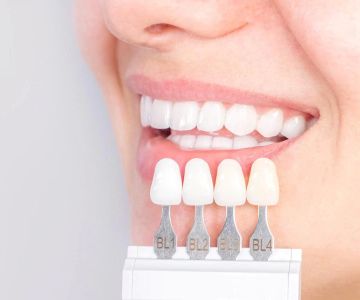

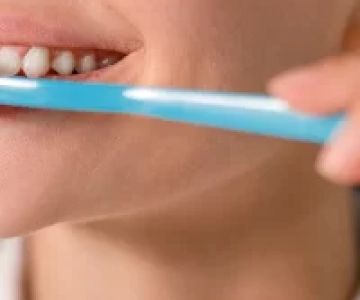
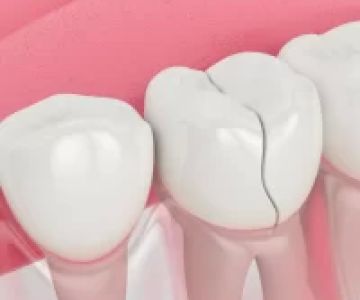
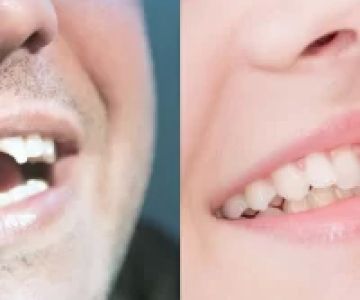
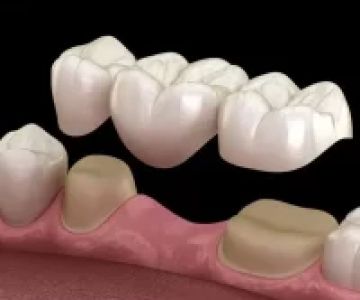
 Woodbridge Dental Group and Orthodontics4.0 (265 review)
Woodbridge Dental Group and Orthodontics4.0 (265 review) Village Dentistry4.0 (130 review)
Village Dentistry4.0 (130 review) Gentle Dental Downtown Portland4.0 (123 review)
Gentle Dental Downtown Portland4.0 (123 review) Ossen Stephen M DDS5.0 (4 review)
Ossen Stephen M DDS5.0 (4 review) Nu Smile Aligner5.0 (1 review)
Nu Smile Aligner5.0 (1 review) Smiles Divine Dental4.0 (25 review)
Smiles Divine Dental4.0 (25 review) The Importance of Oral Health Education During Pregnancy for a Healthy Pregnancy
The Importance of Oral Health Education During Pregnancy for a Healthy Pregnancy Best Tips for Brushing Your Teeth Properly for Healthy Gums: Essential Techniques for Oral Health
Best Tips for Brushing Your Teeth Properly for Healthy Gums: Essential Techniques for Oral Health Why Skipping Dental Checkups Can Lead to Bigger Oral Health Problems
Why Skipping Dental Checkups Can Lead to Bigger Oral Health Problems Advantages of Porcelain Dental Restorations
Advantages of Porcelain Dental Restorations How Can Diabetes Cause Tooth and Gum Problems? Preventing and Managing Oral Health Issues
How Can Diabetes Cause Tooth and Gum Problems? Preventing and Managing Oral Health Issues Healthy Habits for Promoting Good Oral Health and Hygiene: Tips for a Healthy Smile
Healthy Habits for Promoting Good Oral Health and Hygiene: Tips for a Healthy Smile